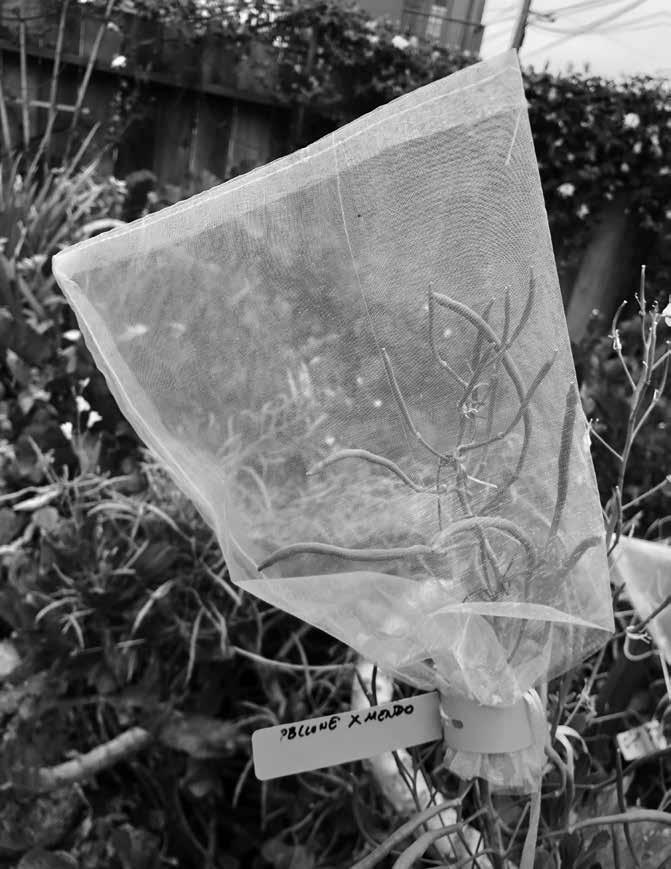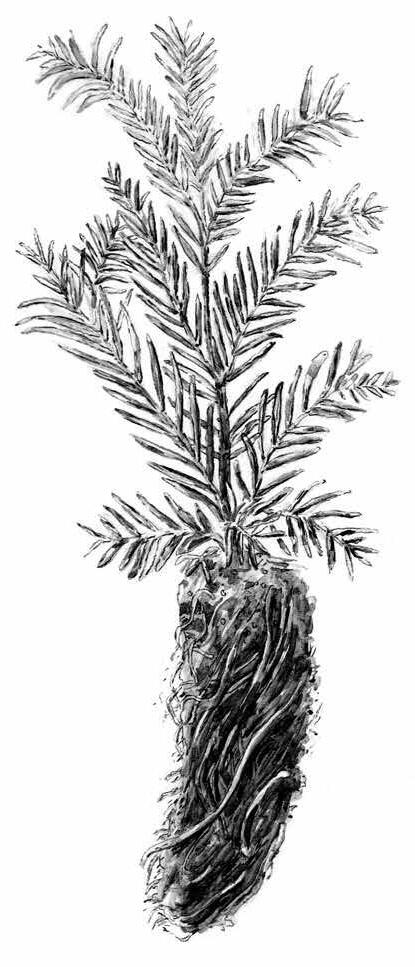
3 minute read
THE THICKET DWELLERS
The thicket dwellers make their nest in the bramble. They chop rocks to remind them of their power. They wash wool to pray for softness. They untangle knots to connect.

Advertisement
Usually, they spend their winter afternoons stomping down dead-standing branches and loosening naked vines from oak seedlings.
But one day, a windstorm was swelling in the South. It picked up excess speed and all the littered plastic bags from the sides of the interstates, and headed toward the thicket with gusto.
In the open fields all around the thicket, the soil was taken up and away. A swirling cloud of dust consumed the work-ers, the worry-ers, and the wait-ers who lived out in the open spaces and scrambled their identities, causing a spell of confusion. But the thicket held strong, and the dirt stayed.
After the storm, residual plastic bags collected in drifts, some as tall as the poplars at the edge of the thicket. The work-ers (who used to be the worry-ers) anxiously went out to gather all the plastic bags into bigger plastic bags. The worry-ers (who used to be the wait-ers) paced back and forth, paralyzed by a deep indecision of whether to help clean up or to do nothing. The wait-ers (who used to be the work-ers) sat and watched the plastic drifts with a gnawing, unresolved feeling.
Inside the thicket, the chaos of the plastic drifts was not felt through the chaos of coiling vines and overlapping twigs. But the thicket dwellers knew deeply their power to alter their surroundings. They remembered their prayers for softness. They felt connected to the tangle. They crawled out of the thicket and into the open each morning to gather an armful each of the plastic bags. They spent their afternoons carefully and methodically spinning the plastic bags into rope. It took a very long time, but the thicket dwellers had plenty of that. The work-ers grew frustrated that the thicket dwellers would not help with the disposal efforts. The worry-ers feared for the thicket dwellers’ sanity. The wait-ers sat and watched. When the plastic rope grew very long, and many of the bags had been spun up, the thicket dwellers took to running lines of rope back and forth. They looped around a lonely tree and passed back to criss-cross over a patch of bare soil many times. They crawled up the sides of the tallest empty building and back down, letting out lines of their plastic rope, like the silk of a spider, everywhere they went. Up flag poles, down lampposts, over dumpsters, and across parking lots until everything was tangled up to the thing next to it. The ground lay beneath a lattice of colorful rope.

Time mostly passed this way. The work-ers, worry-ers, and wait-ers began calling the thicket dwellers the weave-ers.
One day, a wild and angry storm was growing in the South. It picked up speed and the littered plastic bottles along the sides of the interstates. When the winds reached the plastic thicket, nothing blew away. The dirt, the trees, and the buildings stayed. The plastic bottles all got caught in the plastic web. When the storm passed, they hung high and scattered and captured the sunlight coming from behind the storm clouds.
The bottles sparkled full of sun like dizzying mirrors and crystals. The dazzling light transfixed the work-ers, the worry-ers, and the wait-ers into a stupor. Birds from near and far caught wind of the dreamy thicket of colors and light and undertook a migratory pilgrimage en masse to be immersed in the wonder. With them, the warblers, the wrens, and the whippoorwills brought many seeds from many bearing fruits, and found many places to perch upon the criss-cross plastic rope. They planted their seeds and nutrient-dense droppings on the surface of the bare soil. Soon, the bare soil sprouted eager and hardy life that grew up through the plastic rope in a riot of green. Some of the work-ers went around cleaning up the bird poop. Some of the worry-ers paced over and under the plastic rope lines, fretting about what would happen to the thicket if one of the lines snapped from the weight of the nesting birds. Some of the wait-ers sat amid the new and thick growth and pondered what they could no longer see. But some others buried a part of themselves in the loamy soil and crawled deeper still into the thicket, to find the original thicket dwellers.
They found them chopping rocks, washing wool, stomping down dead-standing branches, and loosening vines from around oak saplings. They joined together. ○










